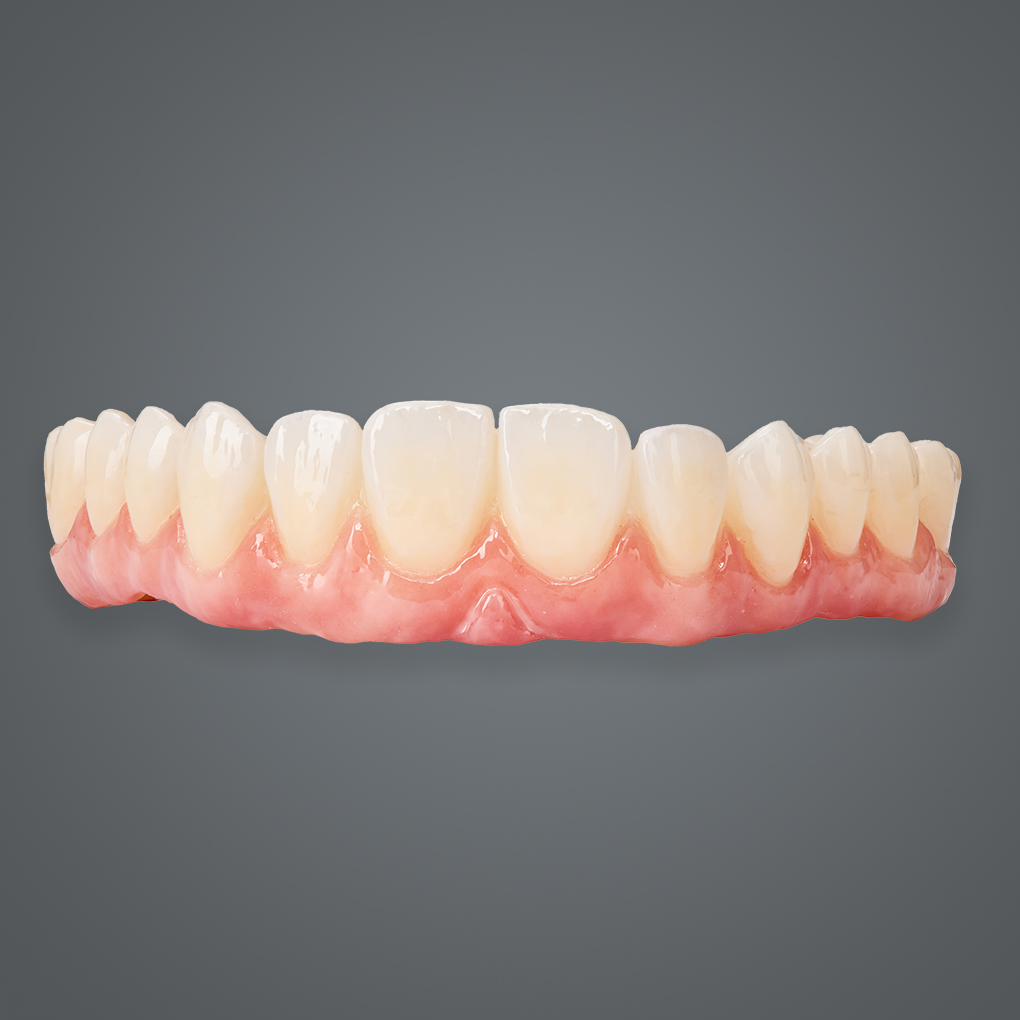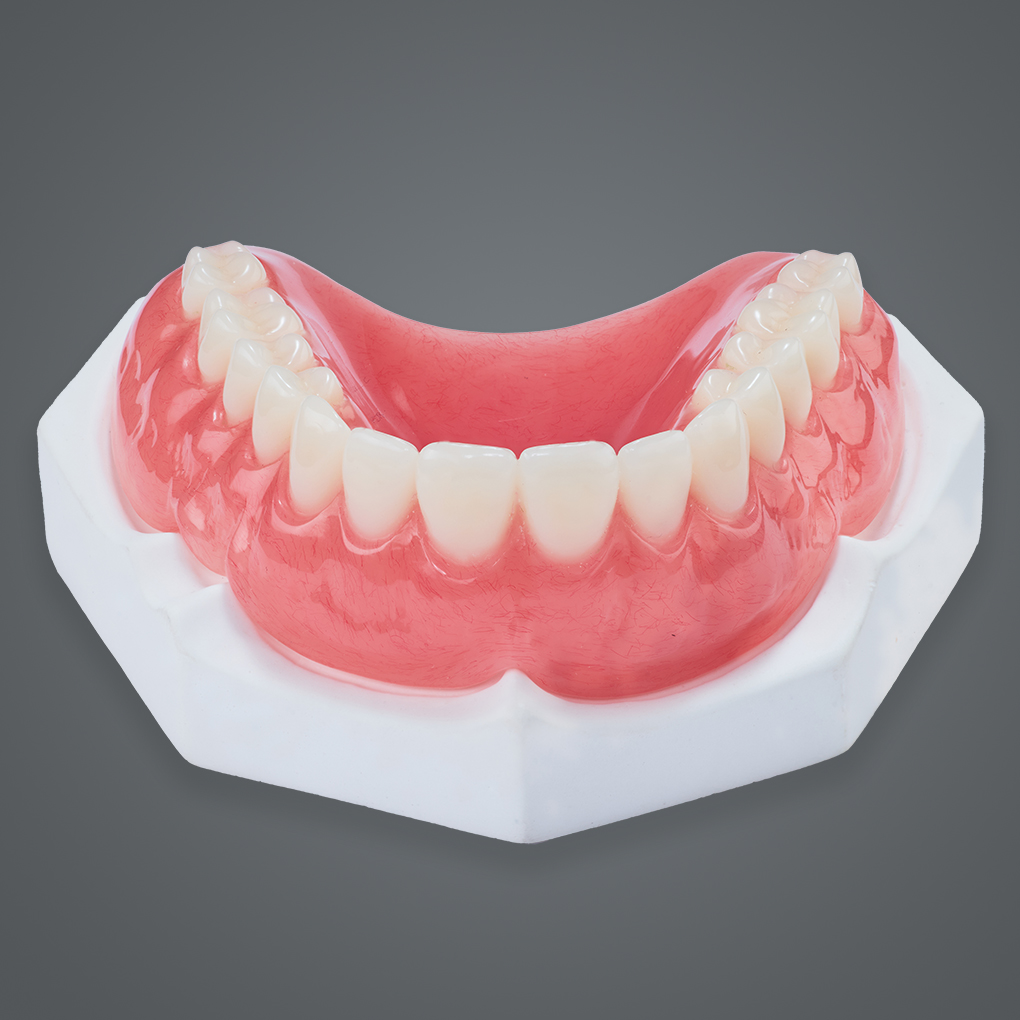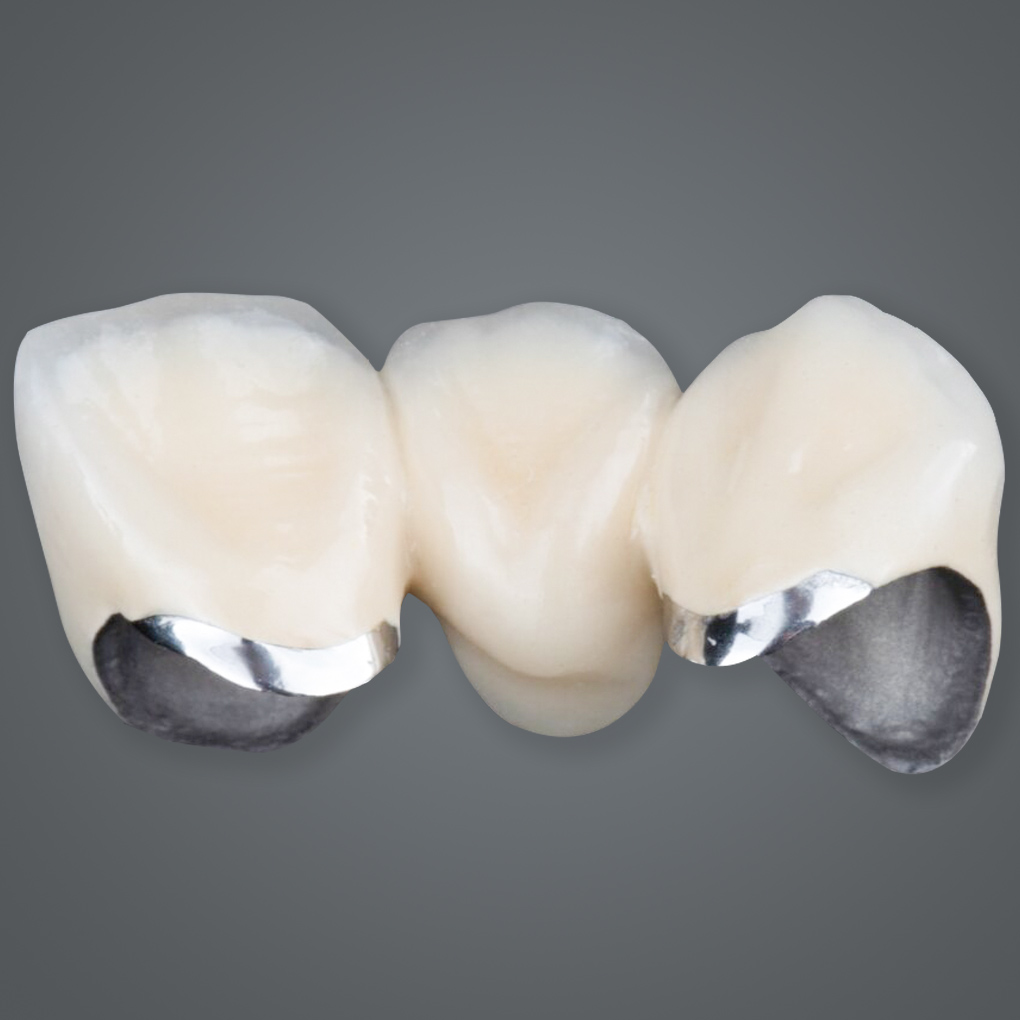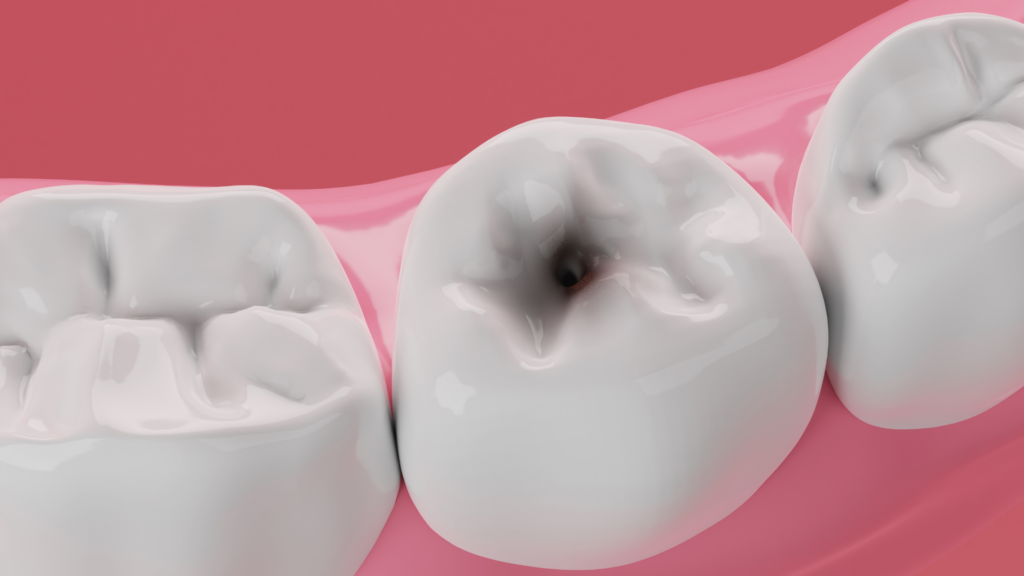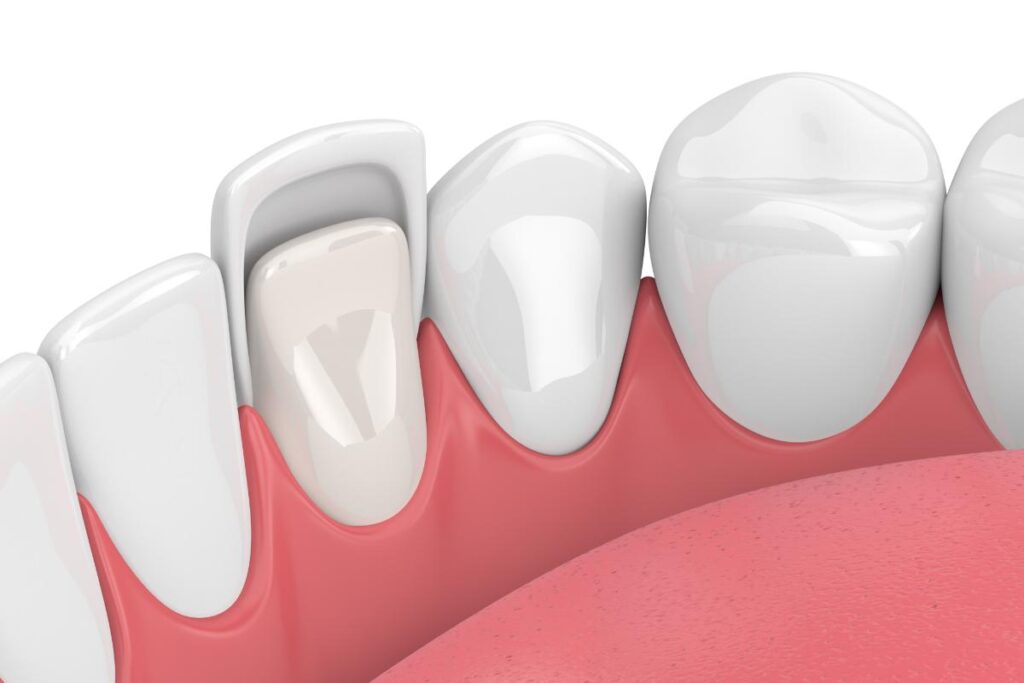Enamel decay is an oral disease that many people encounter. In addition to causing loss of aesthetics, it can also cause sensitivity and discomfort when eating.
Contents
1. What is tooth enamel?
Our teeth have four layers. Enamel is the outermost layer that protects teeth from cavities and physical damage from the outside.
There are two secrets you should know about enamel:
• Tooth enamel is the hardest tissue in the human body
• Enamel does not contain living cells, so it cannot repair itself after being damaged
When enamel wears down, in addition to causing changes in shape, it can also cause tooth discoloration due to exposing dentin. And this also often creates a feeling of sensitivity when eating hot, cold, sour foods, etc., due to irritating dentin.
2. Causes of enamel decay
a. Enamel decay due to acids in food and drink
An unhealthy diet can damage tooth enamel. The outermost layer of teeth can be worn away over time by the acidity found in certain foods:
•Ice
• Orange, lemon juice
• Soft drinks, carbonated water, soda
•Mint
•Tomato
•The coffee
•Tea
• Sour food
Acid is the “enemy” of tooth enamel as it can erode the healthy minerals of tooth enamel. Over time, it can damage tooth enamel.
In addition, regularly eating foods containing a lot of sugar and starch also causes enamel decay. Bacteria can convert these substances into acids if you do not clean your teeth after eating.
b. Improper oral hygiene
Brush your teeth the wrong way
Many people misunderstand that: Brushing teeth strong will help clean teeth more effectively, but it is the opposite. The stronger the brushing force, the more the tooth enamel is worn down.
Besides, do not brush your teeth too many times a day. It is best to brush only 2-3 times a day, use floss and rinse your mouth with water or mouthwash.
Not cleaning your teeth regularly
A good oral hygiene routine is to brush your teeth gently, brush 2-3 times a day, and floss after each meal. The fact that you do not take steps to clean your teeth daily will create conditions for bacteria to accumulate to damage tooth enamel, which can cause damaged enamel and cause tooth decay in the long run.
Enamel decay due to trauma
A fall, collision, or accident has the potential to chip, break, crack or break a tooth. For people with overbite, crooked teeth, a protrusion is a high risk of getting damaged enamel due to trauma.
Bad habit
The habit of using teeth to bite and tear food packaging, bottle caps, and jars can damage tooth enamel.
People who have a habit of grinding their teeth while sleeping will also wear away the enamel of their teeth every day because their two teeth are unconsciously grinding together during sleep. After a long time of suffering bad effects from the outside, the tooth enamel will be damaged
c. Some other causes can cause tooth enamel decay
• Gastroesophageal reflux: acid from the stomach can back up into your mouth when you vomit and erode tooth enamel. People who have a habit of drinking a lot of alcohol are also at high risk of this disease.
• Using antihistamines: this drug has the side effect of inhibiting the secretion of saliva and mucus leading to dry mouth, creating good conditions for bacteria and plaque to accumulate, damaging tooth enamel.
• Vitamin C: strengthening the body’s resistance by drinking orange juice or taking vitamin C effervescent tablets is very good. But there is a risk of enamel damage due to demineralization. The best way you should use a straw, and rinse your mouth with water after drinking.
• Dry mouth: Saliva neutralizes acidity and washes away bacteria, preventing tooth decay. Therefore, if you have a dry mouth, bacteria will have favorable conditions to accumulate and wear down teeth.
3. Recognizing signs
Depending on how much enamel is worn down, symptoms can vary, including:
– Sensitive teeth: tooth sensitivity when you eat or drink hot or cold foods in the early stages when the enamel is worn down.
– Teeth discoloration: teeth may become yellow or appear opaque white spots on the teeth.
– Chipped or holed teeth: tooth edges become rough, uneven, and jagged when the enamel is worn down.
– Smooth, shiny tooth surface: this is a sign of mineral loss due to enamel damage.
– Severely sensitive teeth or sharp pain: long-term enamel wear will lead to this condition. The pain and sensitivity in the tooth will become more and more intense when left untreated.
– Tooth decay: long-term wear of enamel will cause holes in the teeth – usually on the chewing surfaces of the molars.
When tooth enamel is weak, tooth decay is easy occur. Especially when you do not clean your teeth after eating. Small caries may not cause symptoms at first. But over time, tooth decay develops and penetrates deeper into the tooth pulp causing severe pain, making you “not eating well, not sleeping well” or can even cause infection or tooth abscess.
4. Treatment
Although it is not possible to recover. But lost enamel can be replaced by several methods:
• Filling: helps restore the shape and size of teeth. Protect dentin to avoid damage when enamel has been worn away.
• Porcelain veneers: similar to applying artificial nails, this method helps restore shape, or even give a fresher, more beautiful appearance to teeth that have worn enamel. Porcelain veneers are not applicable for teeth with horizontal fractures, broken teeth, or teeth that have undergone root canal treatment.
• Porcelain crown: the dentist will use a porcelain crown to cover the damaged tooth to help preserve tooth enamel, restore the tooth’s shape, and make sure the chewing function is taking place normally.
5. How to prevent enamel decay?
Protecting tooth enamel from damage is also protecting your oral health. Practice the following habits for yourself to prevent enamel wear:
a. Healthy Eating
• Limit eating or drinking acidic foods or rinse your mouth with clean water after eating these foods.
• Use a straw to drink liquids such as soda, soft drinks, or orange juice to limit direct contact with acids.
• You can drink a glass of milk after a meal to help remove the acid.
• You should eat snacks one time to make it easier to clean your teeth instead of eating many times a day.
• Chewing sugar-free gum increases saliva production and supports stronger teeth.
• Drink 2 liters of water a day or more if you often have a dry mouth.
• Limit beer, alcohol, tobacco.
b. Teeth care
• Brush teeth properly.
• Floss daily.
• Using fluoridated mouthwash helps prevent demineralization of tooth enamel caused by acids from foods and drinks.
• Treat gastroesophageal reflux disease or bulimia if present.
• Using the mouth guard at night if you have a habit of grinding your teeth while sleeping.
• Periodic dental visits at least every six months to detect early signs of enamel decay
At Xdent dental outsourcing lab, we specialize in providing dental products for overseas markets. With a team of skilled technicians and modern equipment, we always bring quality, aesthetic, and competitive price teeth processing products to your business.
To learn more about us, please visit
LinkedIn: https://www.linkedin.com/in/xdentdentallab/
Facebook: https://www.facebook.com/Xdentdentallab
Twitter: https://twitter.com/Xdentdentallab
Author: Xdent team

